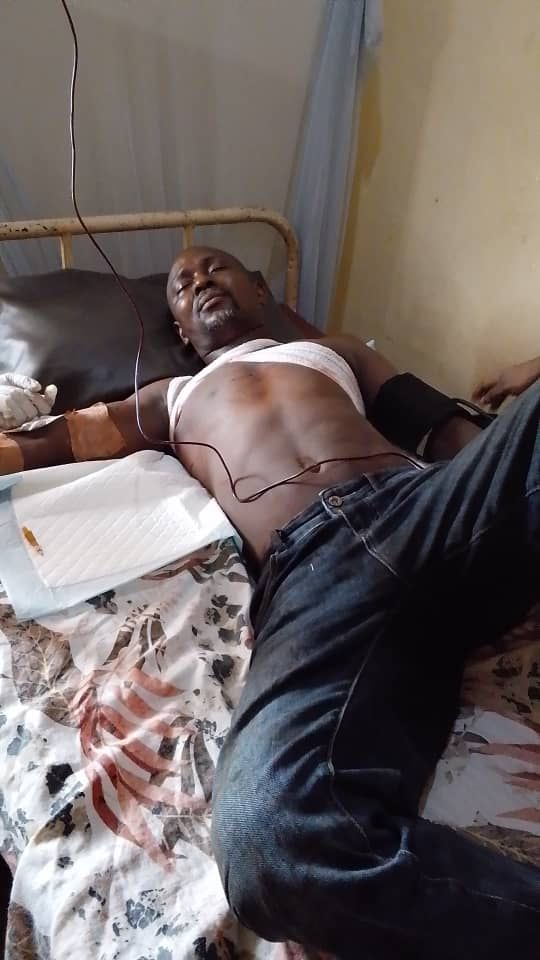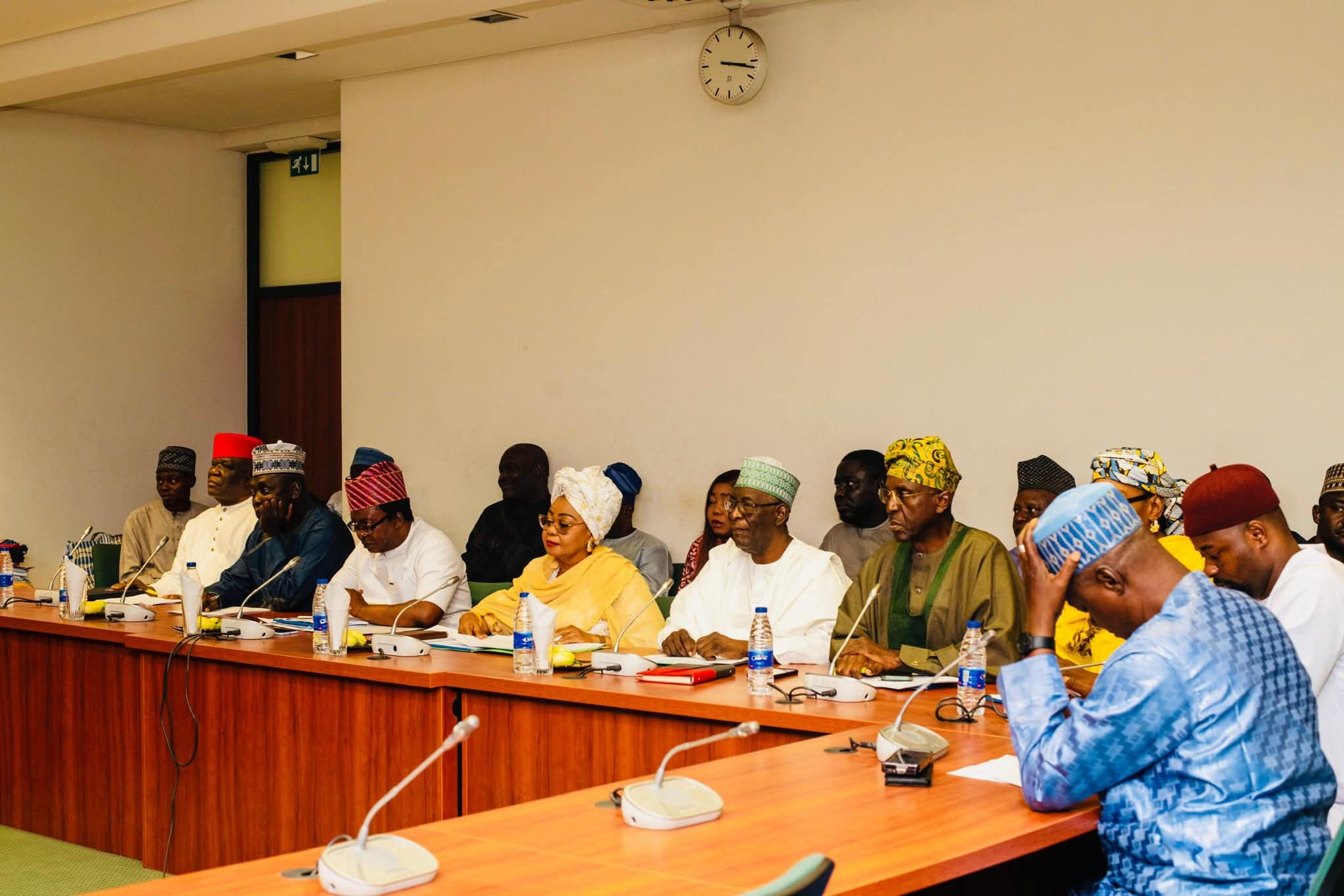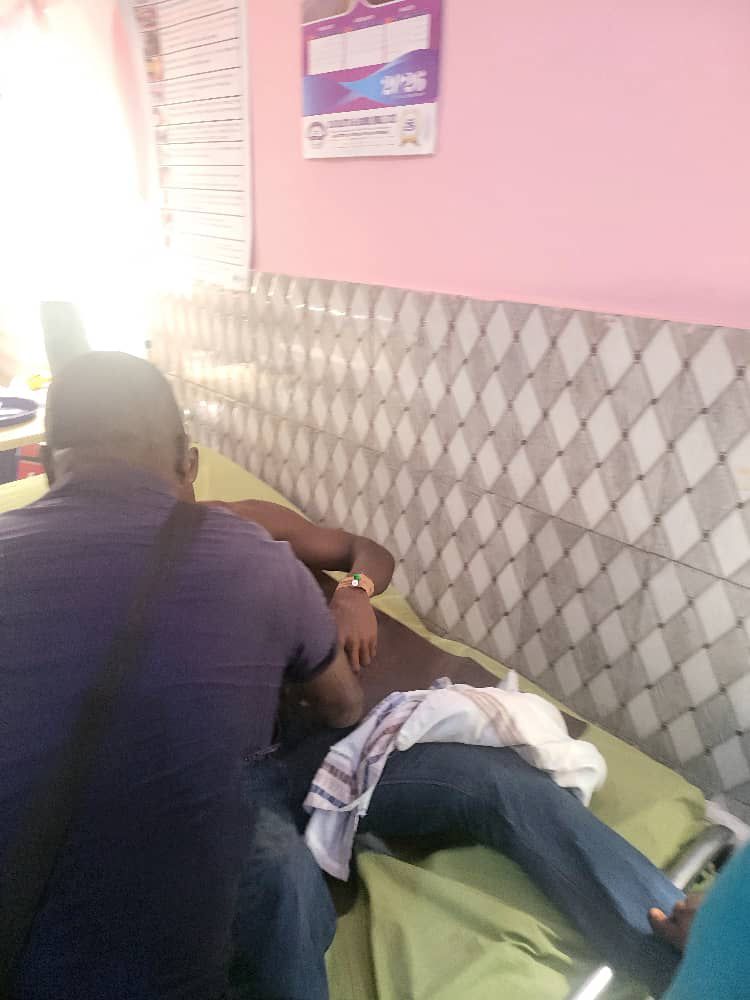society
LAND USE CHARGE: OUTRAGEOUS AMOUNT IN CIRCULATION UNFOUNDED, BASED ON ARREARS – LASG

…Extends Period For Discounted Payment To April 14
The Lagos State Government on Wednesday clarified the figures circulating in the media on the rate for the newly reviewed Land Use Charge Law of 2018, saying many of the numbers were based on several years of arrears on the levy not paid by affected property owners.
Speaking at a news briefing held at the Bagauda Kaltho Press Centre in Alausa, Ikeja, the State’s Commissioner for Information and Strategy, Mr Kehinde Bamigbetan said there were so many misconceptions and misinformation about the new law, adding that the law was a progressive enactment duly made by the House of Assembly and handed over to the Executive for implementation in the overall interest of the people.
He specifically dismissed the humongous figures being bandied about on the social media, saying many of the calculations were based on arrears of many years of non-payment.
“The fact is that this law took a long process to be made. It started as a bill and went through the first reading, second reading, public hearing to which all stakeholders were brought together to debate it and some of the relieves we have seen were part of the debate expressed by the stakeholders about the need to protect the vulnerable segment of the society. Having made the law, the Lagos State House of Assembly has handed it over to the executive to implement.
“The second important part is that a lot of relieves have been built into the law but many people are confusing arrears with the actual figure. If you see those figures, ask whether it is for one year or arrears of several years of non-payment. The humongous figures that are being bandied around particularly in the social media relate to the arrears of many years of non-payment which are computed together,” Bamigbetan said.
Also speaking, Commissioner for Finance, Mr Akinyemi Ashade said the government has extended the period for tax payers to enjoy the 15 per cent discount in the reviewed Land Use Charge Law to April 14, 2018 in order to enable the implementation and enforcement of the new law, as well as allow many property owners to benefit from the discount.
Ashade, who took time to clarify reactions in some section of the public on the new law, said under the old law, which had not been reviewed for over 15 years since 2001, the Land Use Charge rate was totally inaccurate and retrogressive and was depriving the State of keeping track of all economic activities that relate to land in Lagos State.
He said the Law, which was reviewed by the Lagos State House of Assembly and signed into Law by the State Governor, Mr. Akinwunmi Ambode on February 8, 2018 is a merger of all Property and Land Based Rates and Charges in the State.
Ashade said: “There was an urgent need for the repeal, as the old law had not been reviewed for over 15 years, since 2001. Under the old law, the LUC rate was totally inaccurate and retrogressive which deprived the State of keeping track of all economic activities that relate to land in Lagos State.
“The new law is a consolidation of Ground Rent, Tenement Rate, and Neighbourhood Improvement Levy. This charge is payable annually in respect of all real estate properties in the State, which means owners and occupiers holding a lease to a Property for ten (10) years or more are now liable to pay the annual LUC invoice charged.
“Thus, the Tenement Rates Law, the Land Based Rates Law, the Neighbourhood Improvement Charge and all other similar Property Rates or Charges, Laws or amendments to any such property Laws shall cease to apply to any property in Lagos State as from 2018. Nonetheless, all pending invoices, orders, rules, regulations, etc. under the 2001 repealed Law shall continue to be in effect until such obligations are discharged.”
Explaining the calculation of amount payable, the Commissioner said that property owners can determine the amount by multiplying the Market Value of their property by the Applicable Relief Rate of 40 per cent and Annual Charge rate.
“Upon receiving a notice or not, the new law has made it possible for owners to calculate their charge, and enable prompt payment, which allows them to benefit from a 15% discount for early payment, applicable to payments made within 15 days of receipt of Demand Notice,” he said.
Responding to fears of tenants that the new Law might force landlords to increase rent, Ashade said aside the fact that the Lagos State Tenancy Law 2011 was still in force, the incidence of payment for Land Use Charge under the new law is on the Landlord and not the tenant.
He said the minimum rate was only increased from N1,200 it was in 2001 to N5,000, while there is provision for self-assessment and Assessment Appeal Tribunal under the new law.
On vacant properties, Ashade said such would be treated based on owner-occupier and not as a commercial property, explaining that the target of government is to make commercial property owners to pay a little bit more.
society
SENATOR ADEOLA YAYI REGISTERS 4000 JAMB CANDIDATES

SENATOR ADEOLA YAYI REGISTERS 4000 JAMB CANDIDATES
In continuation of his educational support initiatives and following established tradition, Senator Solomon Adeola (APC,Ogun West) has successfully paid for and enrolled 4000 indigent students for the 2026 Joint Admission Matriculation Board(JAMB) examination.
According to a release e-signed and made available to members of the League of Yewa-Awori Media Practitioners (LOYAMP) by High Chief Kayode Odunaro, Media Adviser to Senator Adeola and shared with (your mediu), the programme financed by the senator under the “SEN YAYI FREE JAMB 2026” ended on Saturday , February 21, 2026, with a total of 4000 candidates successfully enrolled with their PINs provided.
Commenting on the success of the programme, Senator Adeola said the programme is another leg of his personal educational empowerment for indigent but brilliant citizens preparatory to his scholarship and bursary facilitation for tertiary education institutions’ students.
“As far as I can help it, none of our children will miss educational opportunities arising out of adverse economic predicament of their parents or guardians”, he stated.
Successful candidates cut across all the three senatorial districts of Ogun State with 2183 coming from Ogun West, 1358 coming from Ogun Central and 418 from Ogun East.
Some of the candidates that applied and are yet to get their PINs due wrong information supplied in their profiles and being underage as discovered by JAMB and other reasons are being further assisted to see the possibility of getting their PINs.
The Free JAMB programme of the Senator that has been running for years is well received by appreciative beneficiaries and their parents.
Alhaji Suara Adeyemi from Ipokia Local Government whose daughter successfully got her PIN in the programme said the Senator’s gesture was a welcome financial relief for his family at this period after payment of numerous school fees of other siblings of the beneficiary seeking admission to higher institution.
Also posting on the social media handle of the Senator, a beneficiary Mr. Henry Olaitan, from Odeda LGA said that he would have missed doing the entry examination as his guardian cannot afford the fees for himself and two of his children.
society
House Committee Seeks Stronger Financial Backing for Federal Character Commission

House Committee Seeks Stronger Financial Backing for Federal Character Commission
The Executive Chairman of the Federal Character Commission (FCC), Honorable Hulayat Motunrayo Omidiran, has reassured the commitment of her new leadership to reposition the Commission and strengthen enforcement of the federal character principle, despite prevailing funding challenges.
Hon. Omidiran made this known during the Commission’s budget defence before the House of Representatives Committee on Federal Character at the National Assembly on Friday, February 19, 2026.
The Executive Chairman opened up on inadequate funding has continued to constrain the Commission’s statutory activities, including nationwide monitoring, compliance audits and enforcement measures across Ministries, Departments and Agencies (MDAs).
“We are focused and determined to do the work that the Constitution and the President have entrusted us with,” Omidiran stated.
The FCC Boss, however, assured lawmakers that the Commission remains resolute in ensuring equity, fairness and balanced representation in line with its constitutional mandate.
“As a Commission, it is our responsibility to engage with relevant government parastatals and ministries to secure the necessary funding we require. We believe that with consultation and collaboration, it will be a successful venture for the Commission.”
Earlier, the Chairman of the House Committee on Federal Character, RT. Hon. Ahmed Idris Wase, expressed deep concern over what he described as near-zero budgetary allocation to the Commission, stressing that such financial inadequacies severely undermine its operational effectiveness.
The Plateau State lawmaker assured the Commission of the Committee’s firm legislative backing in advocating for improved funding and strengthening the Commission’s capacity to fully exercise its constitutional mandate.
“We cannot reasonably expect the Federal Character Commission to enforce compliance across Ministries, Departments, and Agencies while grappling with insufficient funding,” Hon. Wase remarked.
“If we are genuinely committed to fairness, equity, and national cohesion, then we must be deliberate in adequately funding the institution established to safeguard these principles.
“As a Committee, we shall work closely with the leadership of the Commission to ensure that its budgetary provisions reflect the magnitude of its mandate. The era of skeletal or token funding must give way to realistic and sustainable financial support,” he concluded.
The budget defence session concluded on a note of renewed collaboration between the House of Representatives and the Commission, reflecting a shared determination to strengthen institutional capacity, enhance accountability, and promote equitable representation within Nigeria’s public service.
SIGNED:
Ademola Lawrence
Spokesperson,
Federal Character Commission
February 20, 2026
society
APC Ethiope West Congress Turns Violent: Ibori’s Daughter Escapes Assassination Attempt; Scores Injured

*APC Ethiope West Congress Turns Violent: Ibori’s Daughter Escapes Assassination Attempt; Scores Injured
The APC Ethiope West Local Government Area Congress took a terrible turn today as scores were attacked by gun-wielding thugs allegedly hired by old PDP members that moved to APC. The congress was relocated from its original venue the Oghara Township Stadium to a new venue,Ovade, in the LGA seemingly to disenfranchise original APC members.
Violence erupted when the Member representing Ethiope Federal Constituency Rt Hon Erhiatake Ibori-Suenu daughter of the the former Governor of Delta H.E Chief James Onanefe Ibori arrived at the new venue in Ovade. Apart from clear threats to her life by thugs sponsored by the Governor of Delta State, Rt Sheriff Oborevwori and former Rep member Hon Ben Igbakpa. Her supporters were attacked with dangerous weapons, as she was denied entrance to the venue. There were several attempts on her life which were foiled by her security details. There had been intels that she would have been shot if she had stepped foots on the venue this is terrible at a time when there had been hopes of peace coming into the party with the recent meeting at Asaba , however this recent happening shows peace is still far away .
Hon Erhiatake Ibori-Suenu has appealed for calm among APC supporters and old members amidst the unprovoked attack. Several injured individuals are receiving treatment at undisclosed hospitals.
There are still reports of targeted attacks on on members of the Old APC , calls have been made to security operatives to avert such attempts.
-

 celebrity radar - gossips6 months ago
celebrity radar - gossips6 months agoWhy Babangida’s Hilltop Home Became Nigeria’s Political “Mecca”
-

 society6 months ago
society6 months agoPower is a Loan, Not a Possession: The Sacred Duty of Planting People
-

 society5 months ago
society5 months agoReligion: Africa’s Oldest Weapon of Enslavement and the Forgotten Truth
-

 news6 months ago
news6 months agoTHE APPOINTMENT OF WASIU AYINDE BY THE FEDERAL GOVERNMENT AS AN AMBASSADOR SOUNDS EMBARRASSING















You must be logged in to post a comment Login